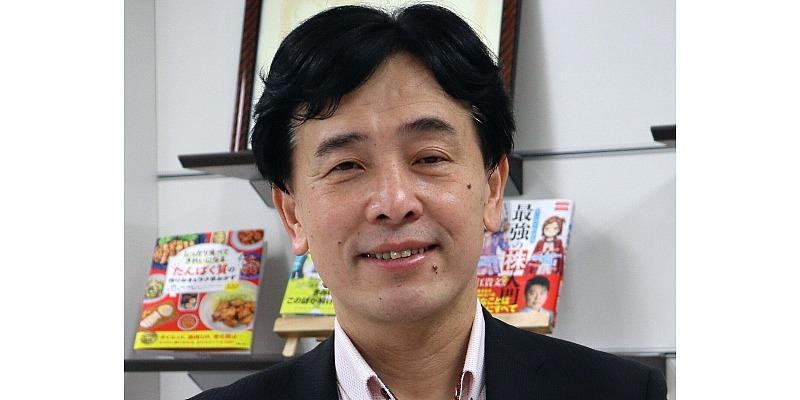 Growing dissatisfaction over the flood of Chinese products
Growing dissatisfaction over the flood of Chinese products
Recent years have seen growing concern within the Association of Southeast Asian Nations (ASEAN) regarding the inundation of consumer goods from China, facilitated by e-commerce (EC) and the ASEAN-China Free Trade Area (ACFTA). In 2004, on the eve of ACFTA’s entry into force, China’s share of ASEAN’s total imports was 9.4%. This increased to 23.6% in 2023. However, the ACFTA is not a one-way agreement. Although ASEAN products can also benefit from exports to China, the result is that China has many products with a comparative advantage.
In Thailand, local small and medium-sized enterprises are suffering from competition from cheap imports from China. What they are especially dissatisfied with is the low-value import scheme. If imported goods cost less than 1,500 baht (about $41), they are exempt from customs duties and value-added tax (VAT) even without the ACFTA. In February 2024, the Joint Standing Committee on Commerce, Industry and Banking (JSCCIB), an organization composed of three major business groups, petitioned Prime Minister Srettha Thavisin to review these rules. In response to this, the Thai Ministry of Finance is considering lowering the maximum price at which goods are exempt from VAT or removing the VAT exemption provision itself.
Chinese BEV imports increase rapidly due to ACFTA
The ACFTA is central to any discussion on the prevalence of Chinese products within ASEAN. Depending on the item, China’s sluggish domestic demand and intensifying domestic competition continue to drive exports overseas. A typical example is the battery electric vehicle (BEV).
Thailand has concluded FTAs with 19 countries. Of Thailand’s total trade value using FTAs, ACFTA accounts for 28% of exports and 47% of imports. The Ministry of Commerce of Thailand has published the top 10 products using ACFTA (HS 6-digit), and according to it, the number one import in 2023 was passenger electric vehicles (HS870380), so-called BEVs.
Under the ACFTA, Thailand is the only major ASEAN member state to eliminate BEV tariffs. As a result, the value of BEV imports from China has increased approximately 600-fold ($2.54 billion) over the past five years.
Thai participation in Chinese BEV business
Nevertheless, it is anticipated that BEV imports through the ACFTA will begin to decline before long. This does not mean that Chinese BEVs are not accepted in the market; rather, it is because the stage is shifting from import to local production. In addition to the tax exemption for imports of Chinese-made BEVs under the ACFTA, Chinese companies are subsidised by the Thai Government for local sales from 2022 onwards, as a result of their commitment to future local production. Therefore, around seven Chinese companies will start local production between 2024 and 2025.
For Thailand, FDI has long been welcomed as it is expected to have economic ripple effects in a variety of ways, including job creation, transactions with domestic industries, technology transfer, and the acquisition of foreign exchange earnings. This time, however, things are a bit different. Over the next two years, Chinese BEV companies will set up factories one after another, but there are almost no reports of business deals from auto parts companies in Thailand. What is certain is that the benefits available to Thai companies are currently limited, and there is growing dissatisfaction and concern within the Thai industry.
Two characteristics of Chinese BEV companies may account for this. First, Chinese BEV companies chose Free Zones (FZs: bonded areas considered to be outside Thailand) rather than general industrial zones. Chinese BEV companies located in bonded zones are entitled to 0% import duty on BEVs imported into Thailand, as long as they add more than 40% domestic or ASEAN value-added and also carry out the designated essential production processes domestically. If this condition can be met, even if all remaining parts are imported from China, transactions and processing within the bonded zones will generally be exempt from import duties and VAT. No bond is required for duty-free import. On the Chinese side, there is no need to follow ACFTA procedures when exporting parts.
Second, Chinese BEV companies, represented by BYD, generally have a vertically integrated business model. They have a high degree of in-house production, especially for core components such as batteries and motors, which limits the scope for outsiders such as Thai companies to enter the trade.
Chinese BEV companies plan to export BEVs assembled in Thailand to ASEAN, Oceania, and, depending on the company, Europe. If a certificate of origin (CO) is obtained for BEVs assembled within the bonded zone, the BEVs can be exported duty-free as Thai origin to markets with which Thailand has an FTA, including ASEAN.
Required review of rules and coexistence with local society
The expansion of the BEV inflow, due to ACFTA, and BEV production practices in bonded areas are attributed to Chinese companies skillfully exploiting institutional design flaws in Thai regulations. If the Thai government does not revise its system, it could damage not only the automotive pyramid it has built over many years, but also the industries of other ASEAN countries through exports.
On the other hand, Chinese companies need to learn from the past history of FDI. In the 1970s, anti-Japanese sentiment raged across Southeast Asian countries. The reason was Japan’s business practices, which tended to prioritize profits without regard to local conditions and led to Japanese companies being described as “economic animals.” Japanese companies have won the trust of local society by reflecting on this. Chinese companies should consider not only their own interests, but also their contribution to the economies and societies of the countries in which they operate.

(Seiya Sukegawa, Professor at the Faculty of Political Science and Economics, Kokushikan University (Visiting Professor, Thai-Nichi Institute of Technology))
ADVERTISEMENT
ADVERTISEMENT


































